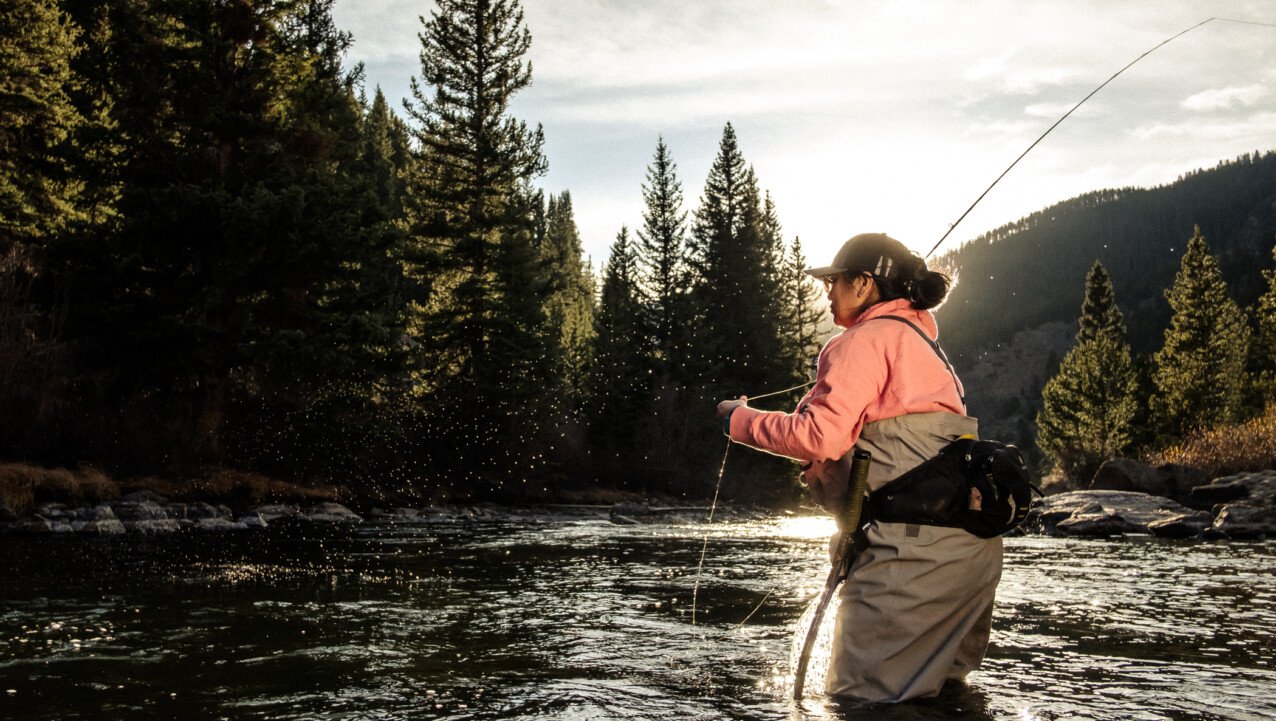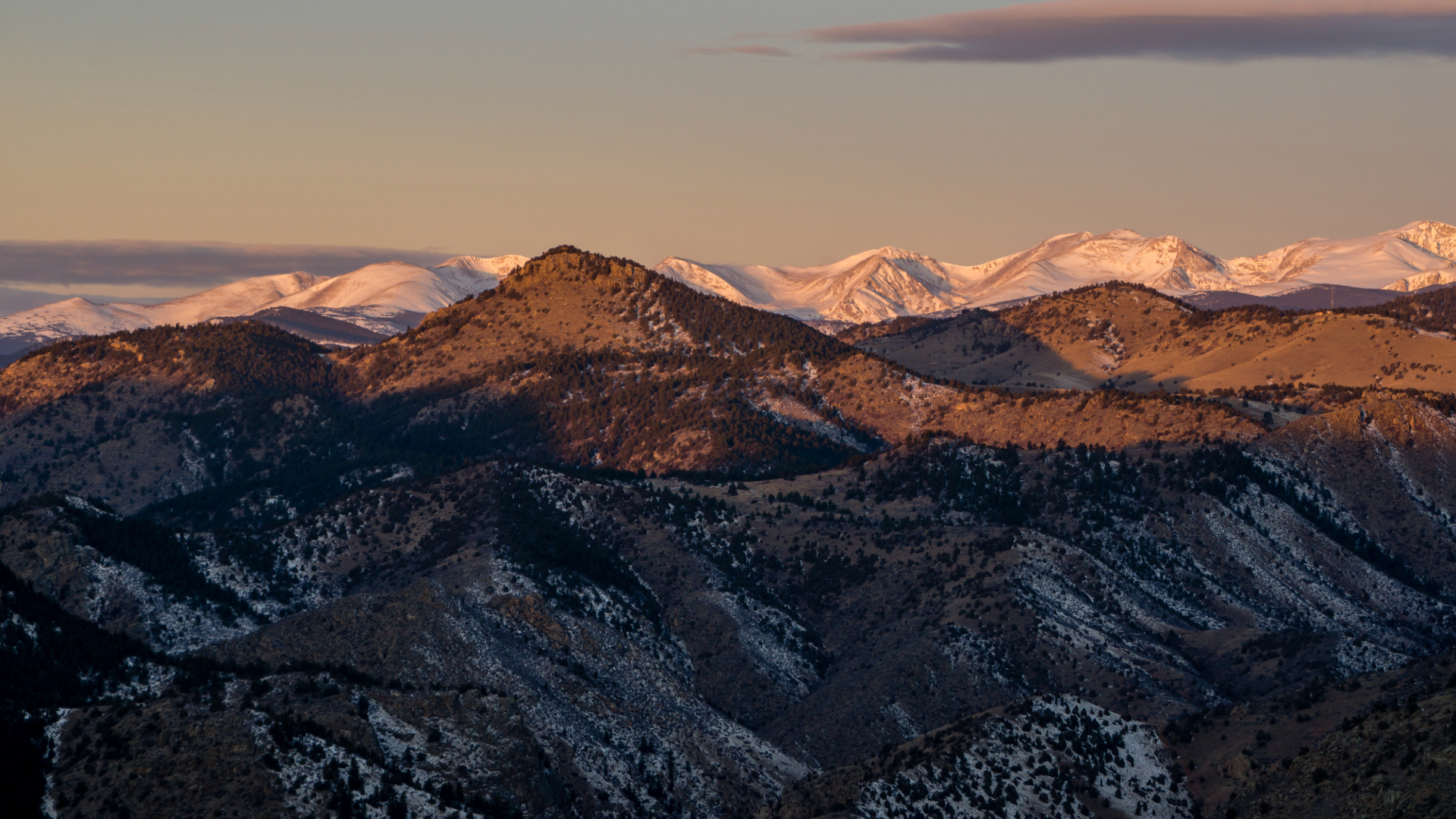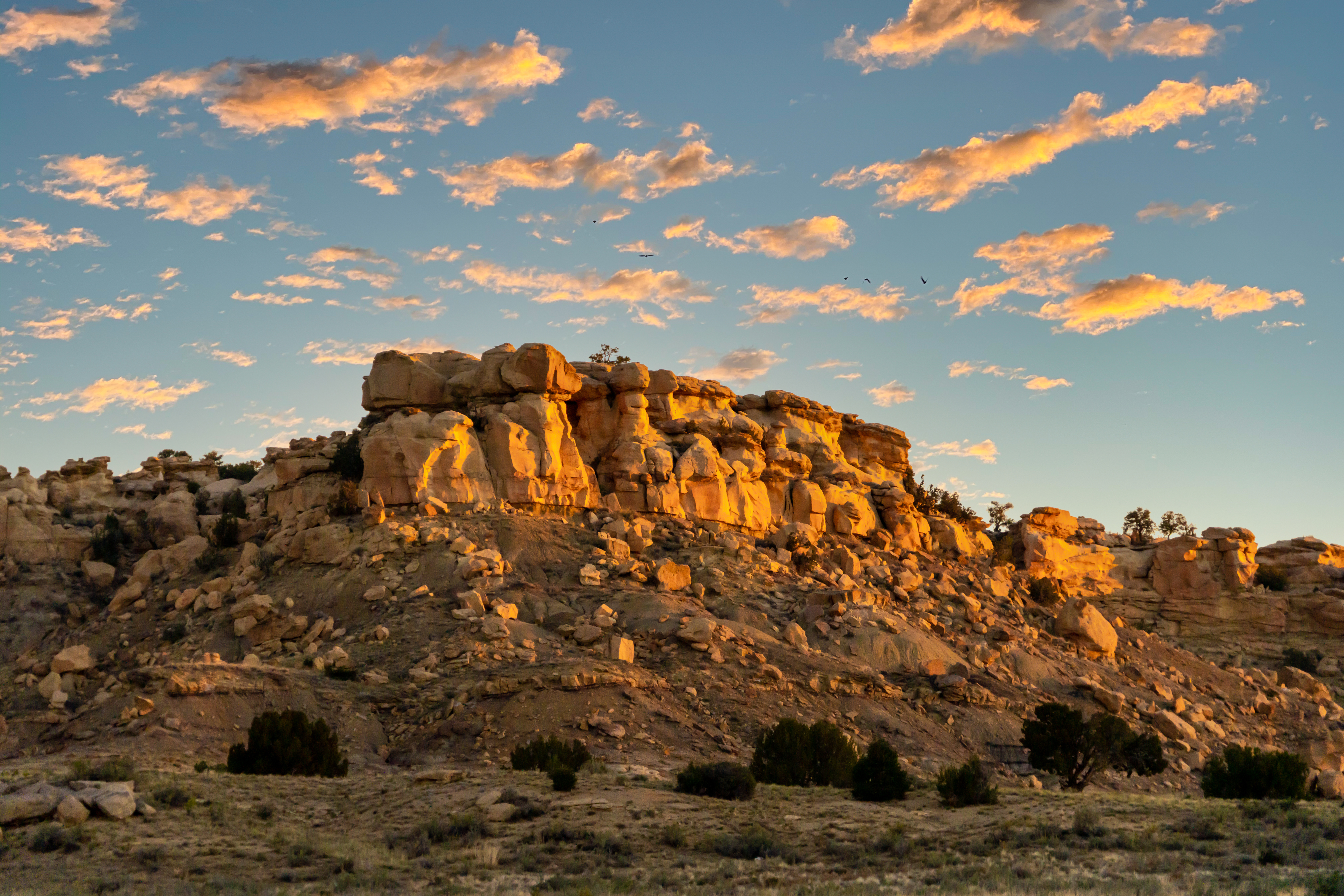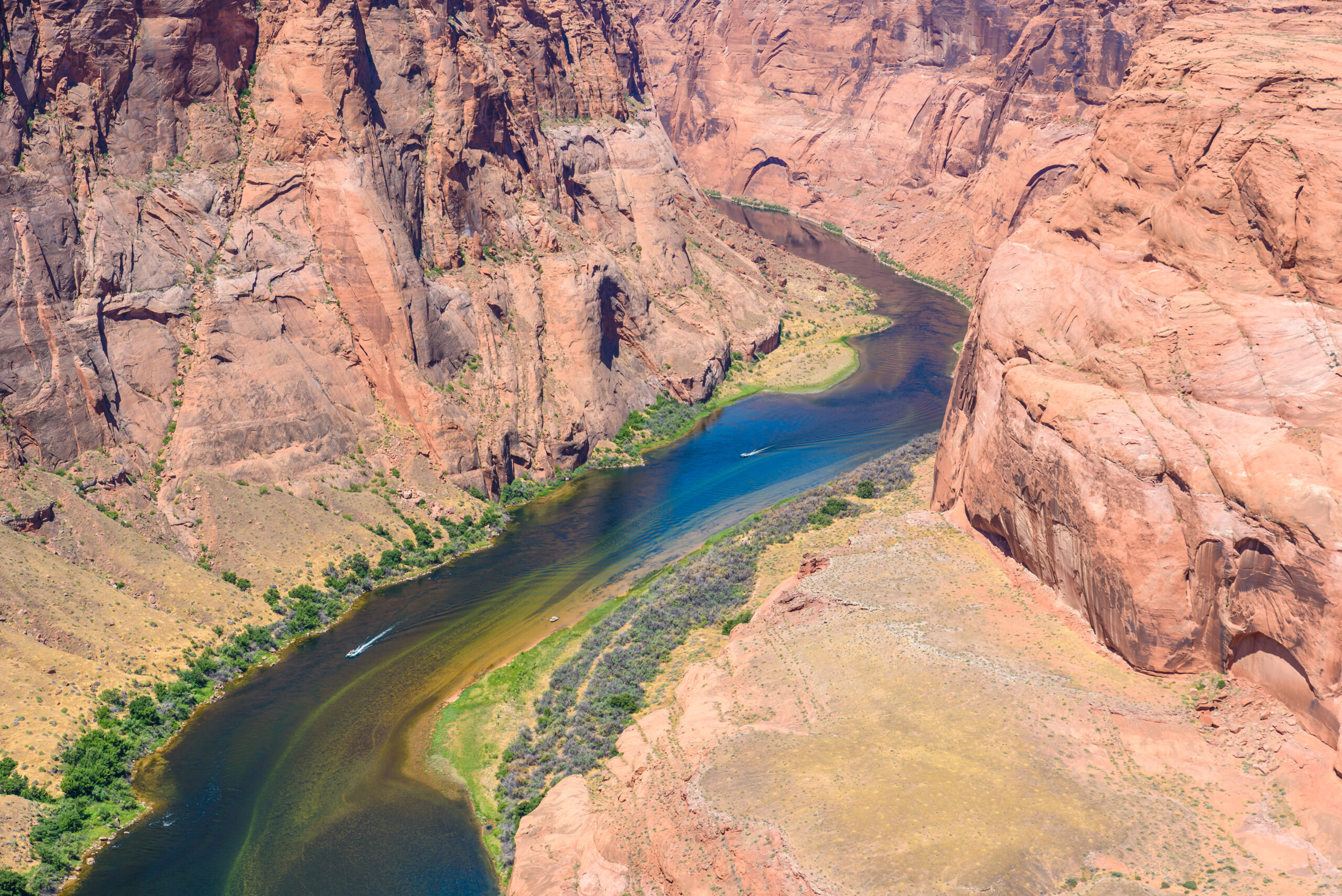October 23, 2025
A zip of the rod and then a gentle plop fill the air as Erica Nelson drops her fly into the flowing waters of the Poudre River. The well-known adage of Heraclitus — that one never steps in the same river twice — is especially true for Erica. As a raft guide, a passionate fly–fisher, and an advocate at Western Resource Advocates, she has a unique perspective that enables her to track the West’s changing rivers.
Like the twists and turns that water carves into canyons across our region, Erica’s journey has forged its own path.
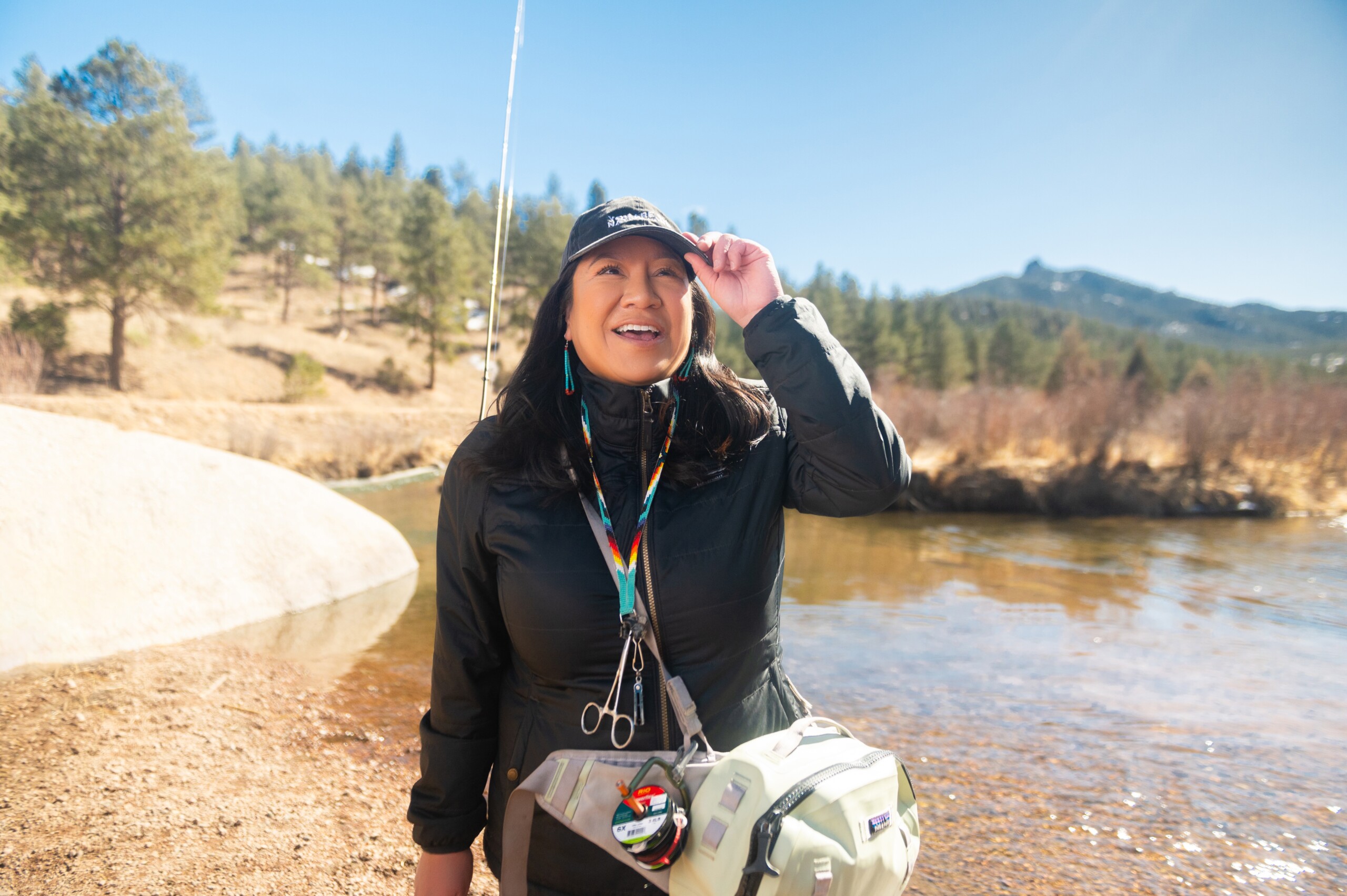
Growing up in the Four Corners region of the New Mexico desert, Erica dreamed of the mountains, which prompted her to move and attend Utah Valley University to study behavioral science.
While Erica played team sports as a child, it wasn’t until college in Utah that she began to develop her love for hiking. The Wasatch Range piqued her curiosity. What was around this next bend? What’s up on that ridge? Curiosity turned into countless nights spent in the backcountry. This desire to be outside led to seasonal work that took Erica all across the West, from Denali to the Grand Canyon to Lake Tahoe. Whether it was housekeeping, bartending, or hospitality, Erica leaned into jobs that would allow her to experience all the wonders of the West.
She landed in hospitality management in Oregon but found herself pining for the outdoors.
“I would go rock climbing all weekend and sleep on the ground and then find myself getting frustrated with guests who complained about thread counts. I knew there was a bigger world out there, and I just wanted to be outside all the time,” Erica recalled.
Eventually, Erica landed in the High Sierra Nevada as a whitewater raft guide on the America River in California. Her desire to stay in the region paired with the passion she found for raft guiding pushed her to enroll in Sierra Nevada College (now affiliated with the University of Nevada – Reno) for a degree in psychology with a minor in outdoor leadership. It was through guiding that Erica stepped into her groove as a communicator and an advocate.
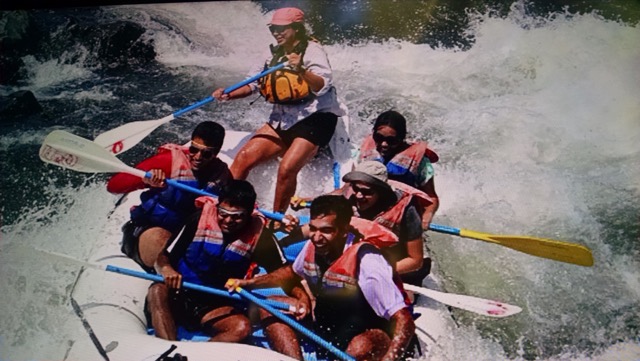
“There were many things I learned about leadership as a raft guide,” Erica shared. “When you’re rafting in big Class III rapids, you must be firm, direct, and an effective communicator. You’re focused on team building to effectively paddle together. As the captain of the boat, you need to manage your emotions and stay calm in stressful situations — like when you’re stuck on a rock or have flipped your raft.”
It was guiding where Erica also began her education in water policy — building a relationship with a deeper understanding of the waves that lapped up against her raft.
Working with more veteran guides who frequently discussed watershed health, the headwaters, and the relationship between dam releases and rafting flows, Erica began to see the river as a resource — not just a site for recreation.
“You realize that the water you’re floating on is also the water that is growing your food and what you’re drinking. I found myself curious about the policies behind the river, where the water goes, and all the different tributaries and what role they play in the watershed.”
She understands that water is inherently political — where it goes, who gets it, and how much. As an Indigenous person from the Diné Tribe, Erica has found herself forging a deeper connection with her culture through the river and understanding its importance to her Tribe. While a conquering mentality is easy to have as one navigates rapids, Erica also wants to ensure that there’s a balance of respect and conservation alongside expeditions.
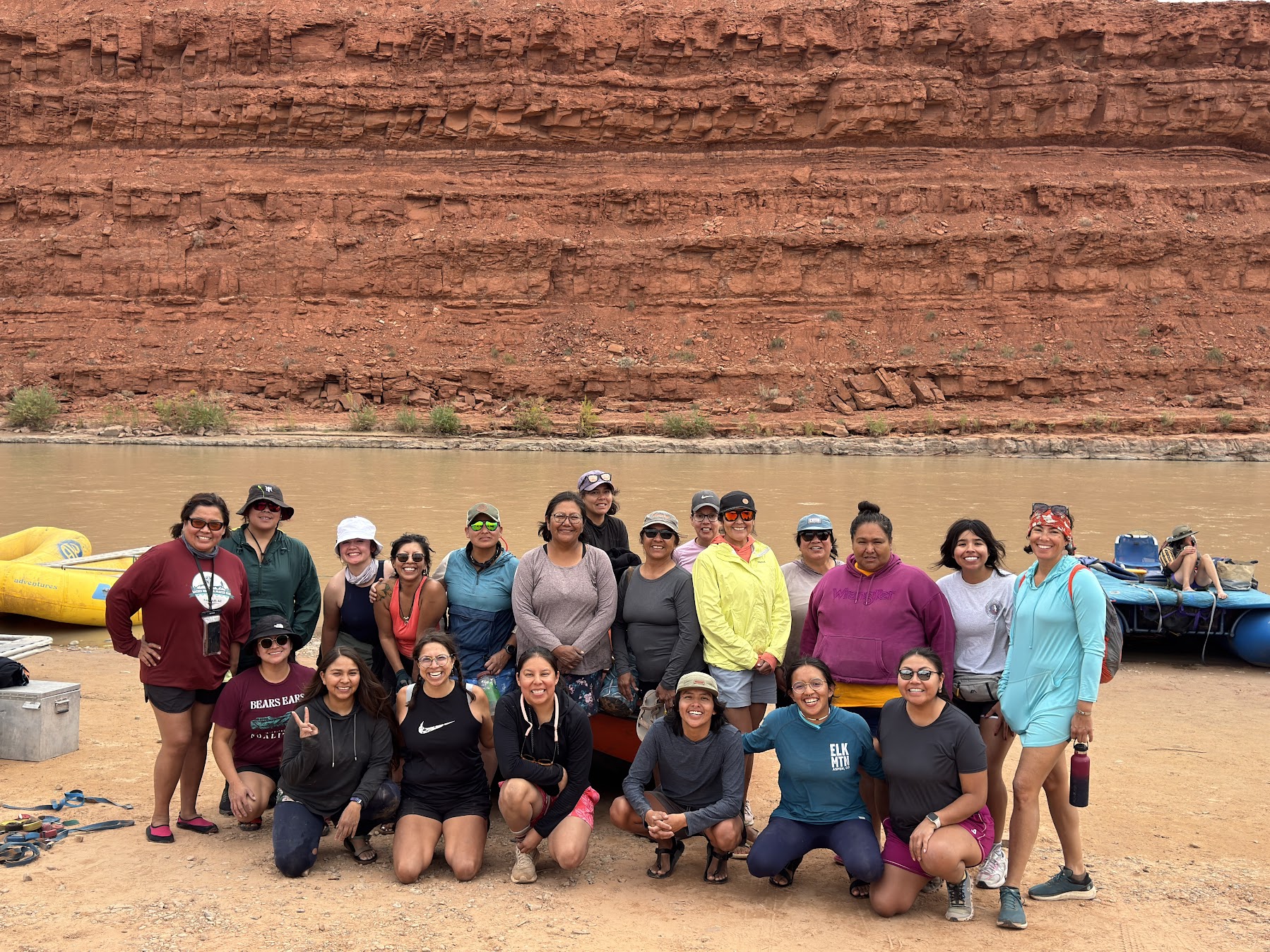
While Erica spent her summers on the river, she needed a job during the winters and found it on the snow at Northstar with Vail Resorts. Here she was introduced to a department called “Talent Development” that focused on organizational development, learning, and leadership workshops. Erica saw this as the logical combination of her passion for outdoor leadership and guiding, along with her background in psychology.
After getting more experience through the National Outdoor Leadership School in Lander, Wyoming, and becoming a whitewater instructor for the organization, Erica found herself back at Vail Resorts in the Talent Development department for a challenging assignment. Crested Butte Ski Resort had just transferred ownership from a family business to Vail Resorts, and the company needed someone to lead the major change management task ahead. Erica was ready for the challenge and found her new home in the Gunnison Valley.
One of the first things Erica discovered about the area was its premiere fishing. Erica picked up fly-fishing while in Wyoming and loved the way that it further deepened her relationship with rivers.
While being on a boat can be fast and furious, fly-fishing slows down the pace and offers an intricate puzzle of the water that Erica finds addicting.
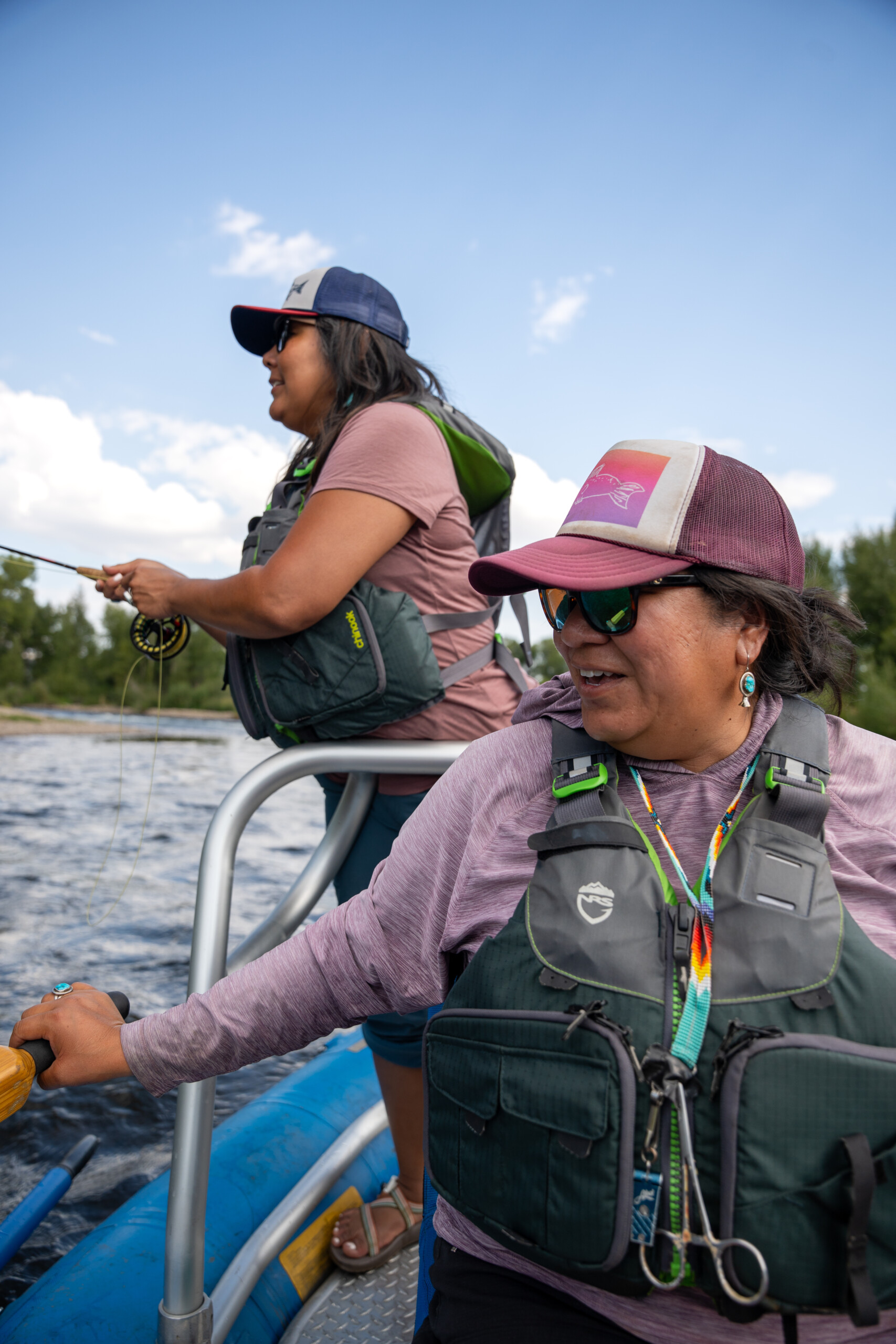
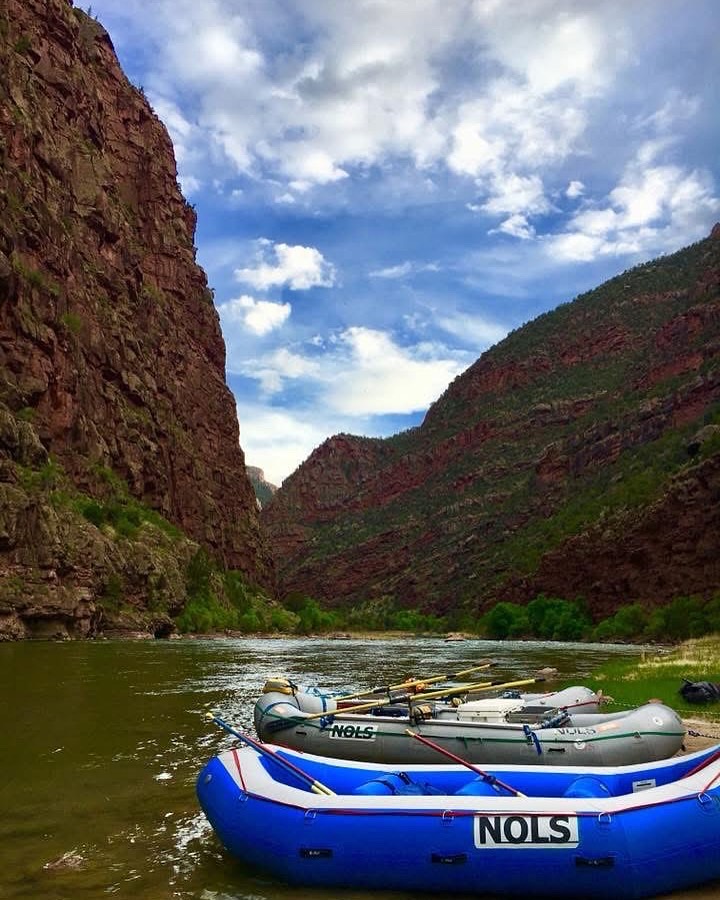
“Finding the right temperature, knowing where the fish are, determining what flies to use and matching them to the current bug hatch cycles, knowing what birds are in the area, or recognizing what pockets of the river fish gravitate towards — it’s an intimate understanding of the river. When you put all these pieces together to hold a fish, it is a very special thing,” Erica said.
It’s this holistic connection with the river’s ecosystem that Erica found compelling. So compelling, in fact, that she continued her path as an educator by becoming a fly-fishing guide in Gunnison Valley and began her work in conservation.
Erica has always considered outdoor recreation as a gateway to conservation. She saw it in herself when she looks back on her time on the American River with the other guides learning where the water came from. And when she came to Crested Butte and started fishing in a tributary of the Colorado River, she became curious about the state of the Colorado River.
“I learned a lot, which I don’t think I would have done if I wasn’t spending as much time on the river. I see part of my role as a fly-fishing guide as an educator about the river for others,” she explained.
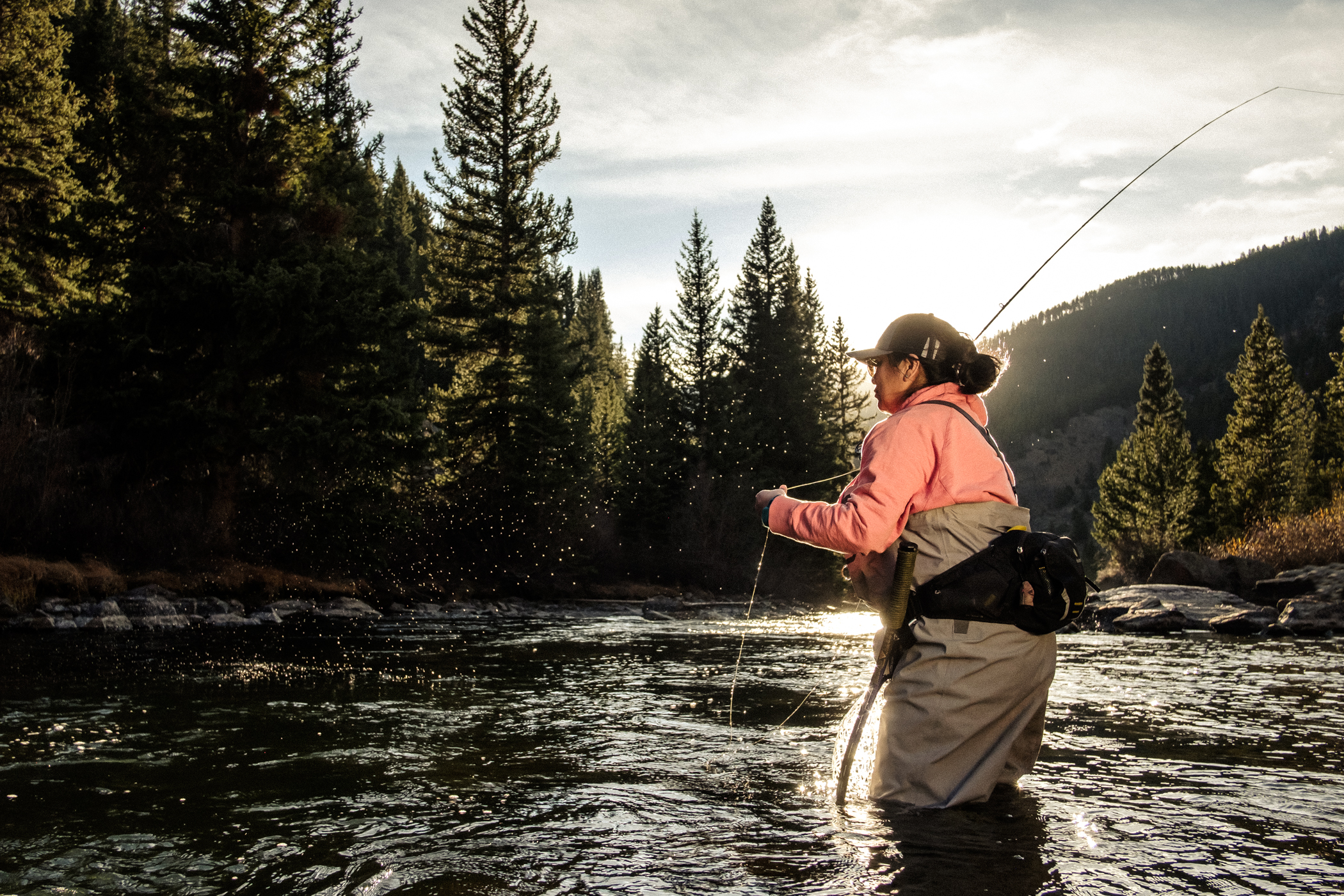
Teaching others how to fish and guiding them through the process sparks a new relationship with the river and new curiosities about how we can protect water in the West. It’s this educating and guiding that is Erica’s sweet spot. After working at Vail Resorts and guiding on the side, Erica decided to deepen her conservation work by leading outdoor organizations towards racial equity and inclusion through her own consulting practice. This is what eventually guided her to join Western Resource Advocates as an Equity and Engagement Manager.
At WRA, Erica collaborates with internal teams and external partners to build meaningful relationships, promote equitable policymaking, and create a more inclusive workplace at WRA. She works to ensure that equity is a core practice throughout all of WRA’s climate advocacy work.
Part of this work is building more equity into the Colorado River guidelines — connecting both her professional expertise and her passion for the river.
“This work is extremely important to me because I have been lucky enough to raft the Grand Canyon and because these areas are part of my homelands as a member of the Diné Tribe.”
While often challenging, Erica continues this work because water is an integral part of the ecosystem in her life and community. The snowfall that fuels the economy of Crested Butte eventually flows into the river that she guides on and enjoys. But it expands much further beyond that for Erica.
“I think about how we make sure that people have clean drinking water across the West, especially my Tribe. I think about how we make sure that future generations can access this water. I think about how we can protect the fish and the people that depend on our rivers.”
As an educator and guide, Erica never loses hope.
She’s seen how the experience of catching a fish can open also someone’s eyes to the reality of climate change. She knows that advocacy work, like fly-fishing, requires patience and diligence. And while that first cast might not have brought anything in, she reels it back and, again, fills the air with the zip and plop, zip and plop, zip and plop.
Other stories in the series
Introducing “Topophilia — Journeys to Advocacy Through our Love for the West”
In this series, we’re exploring the human elements of our work flighting climate change in the West. You’ll hear from staff members across the organization about how their experiences across ...
Topophilia: A Journey Back to the Waterways of New Mexico
In her home state of New Mexico, Anjali Bean is helping break up a decades-long stalemate and bringing both sides of the water debate to the table to figure out ...
Topophilia: Turning a Deep Love for Nevada into a Clean Energy Future
Emily Walsh has been deeply embedded in the Sierra Nevada since she was a child. Today, she works to shift the energy landscape of Nevada and to protect her home ...
Topophilia: Swimming Upstream to a Clean Water Future
If you find yourself at Boulder Reservoir on a bright summer morning, you’re likely to catch Orla Bannan taking strong, steady strokes across the water as she trains for her ...
